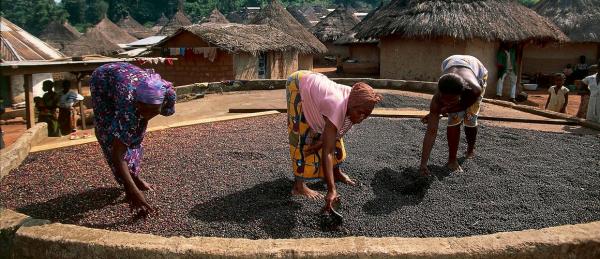Issues
Africa will have more than two billion people to feed by 2050, while coping with environmental, climate and health changes. At the same time, undernourishment is continuing to rise, and now concerns almost 20% of the continent's population. As a result, it is now vital to ensure food security in Africa, and the bioeconomy is set to play a starring role. African agrifood systems can contribute to the continent's food and nutrition security by alleviating poverty and securing food supplies while fostering inclusive, sustainable rural development.
The Bio4Africa project aims to transfer simple, robust, small-scale technology suitable for local biomass, requirements and constraints, such as green biorefineries, pyrolysis, hydrothermal carbonization, briquetting, granulation, biocomposites, and bioplastics.
Description
Bio4Africa aims to support the rollout of the bioeconomy across rural Africa via the development of bio-based solutions and value chains, taking a circular approach to foster the cascade utilization of local resources and diversify farmers' incomes. The aim is to transfer simple, robust, small-scale bio-based products and technology suited to local biomass, requirements and constraints (green biorefineries, pyrolysis, hydrothermal carbonization, briquetting, granulation, biocomposites, and bioplastics). In this way, we hope to enable farmers to produce a wide range of higher added-value bio-based products and forms of energy (animals feeds, fertilizers, pollutant removers, solid cooking fuel and catalysts for biogas production), thus improving the environment and the economic and social performance of their fodder-based agrifood systems.
To this end, we have set up four pilot areas with eight trial sites in Ivory Coast, Ghana, Uganda and Senegal, giving more than 300 farmers and farmers' groups of various sizes (including small-scale dairy farmers with low incomes, women farmers' groups and transhumant livestock farmers) the possibility of testing those solutions in real-life conditions.
Our balanced consortium – 13 African and 12 European partners – will be embarking upon a solid multi-stakeholder collaboration with rural communities and governments in the countries concerned, to co-develop new, sustainable, value-added sectors driven by circular economy models and support a rollout across other fields, while preserving their environmental, social and economic sustainability.
Expected impacts
The Bio4Africa project aims to:
- Transfer simple, robust, small-scale bio-based products and technology suited to local biomass, requirements and constraints;
- Enable farmers to produce a wide range of higher added-value bio-based products and forms of energy;
- Set up four pilot areas with eight trial sites in Ivory Coast, Ghana, Uganda and Senegal;
- Give more than 300 farmers and farmers' groups the possibility of testing those solutions in real-life conditions.
Find out more
A consortium of 25 partners involved in the Bio4Africa project is exploring ways to make use of agricultural waste. Processed through seven different methods that are adapted to local conditions and needs, this waste is turned into animal feed, fertilisers or pollutant removers. The technologies are being tested in real conditions in four African countries. The goal is to propose these systems to local communities in order to drive inclusive rural development.
Contract partners: 13 African partners (in Senegal, Ivory Coast, Ghana, Uganda and Kenya) and 12 European partners (in France, Greece, Ireland, Spain and the UK)


























